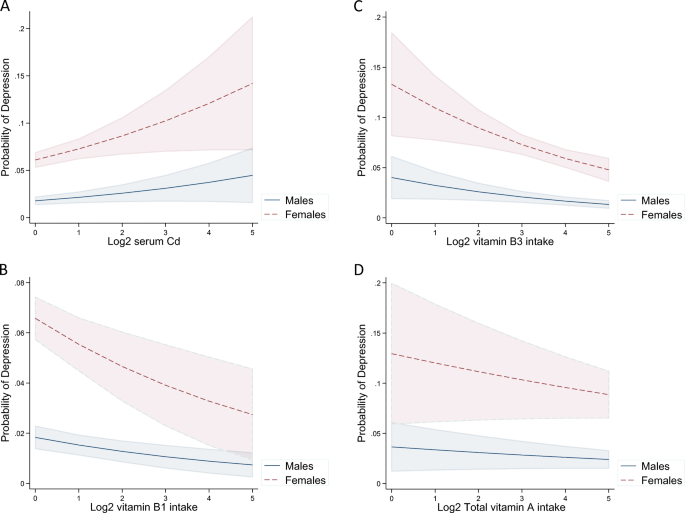This study targets its audience by explaining how depression hit many people after COVID-19 and the way vitamins are a combination of a series of negative effects it may have on humans. Depression is an effect of many socioeconomic factors and is seen more commonly now in modern society, therefore, the intake of supplements has been very well-known, as well as, studies coming out describing the outcomes. Heavy metals including Mercury(Hg), Cadmium(Cd), and Lead(Pb) are studied in order to understand if it truly makes an impact on someone dealing with depression. Many factors were taken into consideration when performing the study where the authors examined the 16, 371 participants and recovered blood, urinary samples, medical checkups, and monitoring of food ingested. The results of the study allowed us to see that 3.64% of participants were dealing with depression. In table 1 it is described that cadmium was higher for people with depression. In table 2 it is analyzed that participants were given vitamin B1, B2, B3, C, A, and retinol which seemed for people to have a lower percentage of depression. Then in table 3, it allowed us to verify that heavy metals, ingestion of vitamins, and sex of people will not influence who has depression and who does not. This study allowed the audience to understand that heavy metals and dietary supplements can improve the well being of a person including a topic as strong as depression.

No comments:
Post a Comment